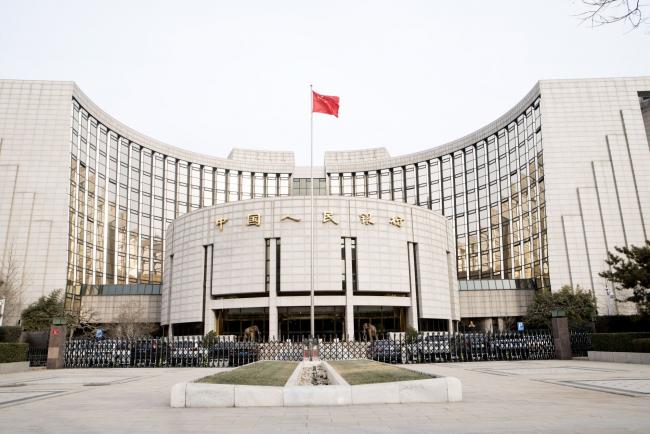(Bloomberg) -- China’s central bank provided medium-term funding to commercial lenders and cut the interest rate it charges for the money, a move widely anticipated by analysts to cushion the economy from the virus epidemic.
The People’s Bank of China offered 200 billion yuan ($29 billion) of one-year medium-term loans on Monday. The rate was lowered by 10 basis points to 3.15%, the lowest since 2017. The central bank also added 100 billion yuan of funds via 7-day reverse repurchase agreements, resulting in a net 700 billion yuan withdrawal of money from markets as some 1 trillion yuan of reverse repos matured on Monday.
The rate reduction is “in line with expectations, while the injection amount is relatively small as interbank funding is sufficient after the new year,” said Zhou Guannan, an analyst at Huachuang Securities Co. in Beijing. Zhou expects additional MLF funding to be supplied in March.
Since the outbreak of the coronavirus worsened in late January, China’s central bank and government have announced small rate cuts, early bond sales, and various other targeted measures to calm financial markets and support companies. So far, there’s not been a massive increase in stimulus, although that may change if and when the coronavirus is brought under control.
Monday’s rate cut is likely to be matched by a similar reduction in the loan prime rate, which is the basis for pricing corporate and household loans. A Bloomberg survey showed economists expect the rate for 1-year loans to fall by 10 basis points when it’s announced on Feb. 20.
China’s Fiscal Coffers Are Depleted Just as Virus Spurs Spending
Futures on China’s 10-year government bonds reversed gains after the operation, falling as much as 0.14%. The yield on sovereign notes due in a decade rose 1 basis point to 2.87%, the highest level this month. China’s CSI 300 Index recouped all of its losses since trading resumed after the Lunar New Year break.
“I don’t think investors are overly worried about a lack of liquidity as it’s a clear trend that the PBOC would ease,” said Zhou Hao, an economist at Commerzbank AG (DE:CBKG). “Any declines in bonds resulted from today’s operation will create an opportunity for investors to buy more debt. The 10-year sovereign yield may fall to 2.8% in the coming weeks.”
To contact Bloomberg News staff for this story: Tian Chen in Hong Kong at tchen259@bloomberg.net;Qingqi She in Shanghai at qshe@bloomberg.net;Heng Xie in Beijing at hxie34@bloomberg.net;Jing Zhao in Beijing at jzhao231@bloomberg.net;Yinan Zhao in Beijing at yzhao300@bloomberg.net
To contact the editors responsible for this story: Sofia Horta e Costa at shortaecosta@bloomberg.net, James Mayger
©2020 Bloomberg L.P.
